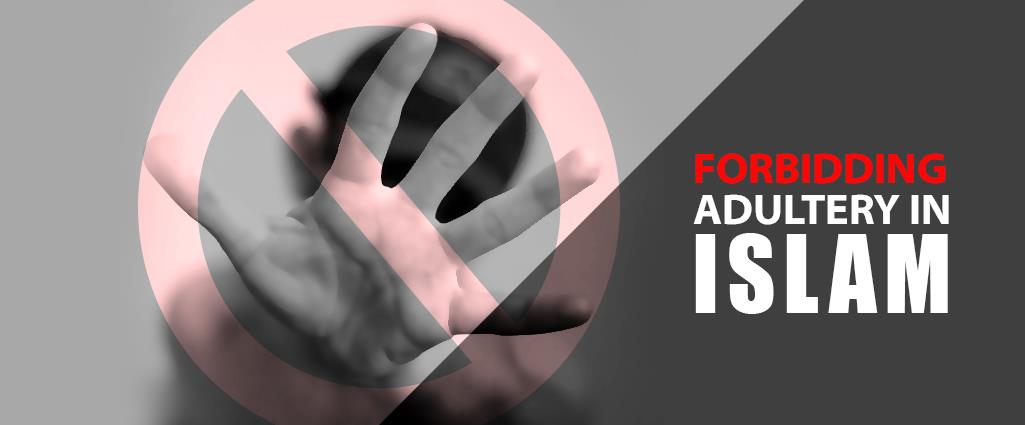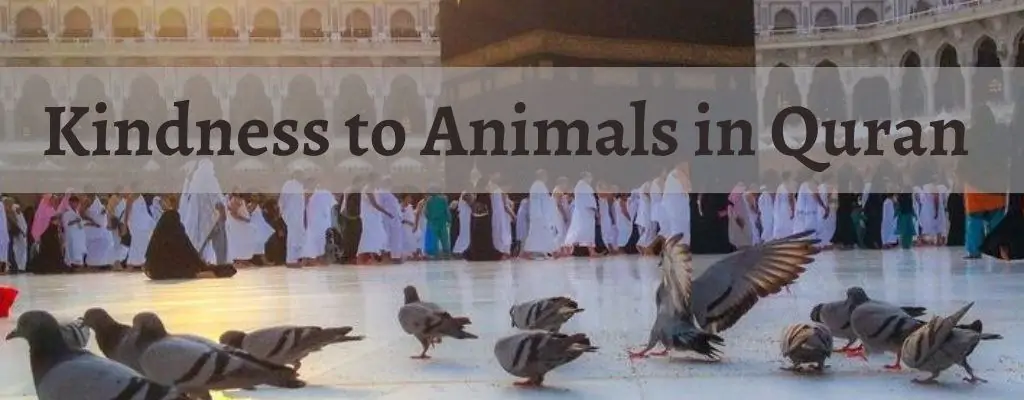Adultery in Islam, known as Zina, is a serious offense that undermines the foundation of family and societal values. Islam strictly prohibits any form of sexual relations outside the sanctity of marriage, emphasizing the importance of fidelity and moral integrity. This comprehensive guide delves into the various aspects of Zina in Islam, including its definitions, types, consequences, and the path to repentance. Understanding these facets helps Muslims adhere to their faith and maintain righteous conduct.
Here we will learn the following:
- What does Islam say about sexual relationships?
- Consequences of adultery in Islam
- Types of adultery in Islam
- Punishment of adultery in Islam
- The punishment of adultery in Quran
- The punishment of adultery in the Sunnah
- Zina punishment in grave
- Forgiveness for zina and adultery in Islam
- Is it haram to think sexually
What does Islam say about sexual relationships?
Islam places a high value on the institution of the family, considering it the cornerstone of society. A healthy family is formed through a marriage relationship, which is a bond between a man and a woman. In marriage, sexuality exists but is not the primary goal; it is a reward for prioritizing the rights of the spouse, society, and Allah over sexual impulses. This prioritization builds a healthy and stable relationship.
Adultery flips this equation, making sexuality the top priority and viewing the bond between two people as secondary. Because of this, adultery is heavily forbidden by Allah, with punishments depending on its severity.
Sex outside marriage reduces the family to an institution that imposes unnecessary burdens. Why should a man take on responsibilities when he can have his pleasure in casual relations that are easily terminated? Because sexual relationships outside marriage heavily undermine family values, they are deemed by Allah as sins equal in weight to the detrimental damage they cause.
Learn more:
- Beautiful Quran Verses About Love And Marriage In Arabic and English – Relationships in the Quran
- Marriage in Islam – Full Guide to Rights and Duties
- Are Muslims Allowed To Date? – Dating In Islam
Consequences of adultery in Islam
Adultery and relationships outside marriage have severe consequences:
- Single-Parent Households: Approximately 16% of the world’s children grow up with only one parent due to adultery and relationships outside marriage.
- Impact in Western Countries:
- United States: 35% of children grow up in an unhealthy family environment.
- Canada: 22% of children experience single-parent households.
- United Kingdom: 21.5% of children are raised in similar situations.
These statistics highlight the detrimental effects of adultery on family stability and child welfare. Islam prohibits adultery because it prioritizes sexual gratification over the responsibilities and commitments of marriage, leading to societal and familial breakdowns.
Read also:
- Prophet Muhammad As A Husband – How Did He Treat His Family?
- Engagement In Islam – Western Complete Guide To Rights And Duties
- Benefits of Love And Marriage In Islam
- Love At First Sight
Types of adultery in Islam: Difference between fornication and adultery in Islam
Islam distinguishes between different types of Zina (illicit sexual relations). While all forms of Zina are considered grave sins, some are deemed more severe than others.
- Adultery: This term refers to any sexual activity outside of marriage. It encompasses both married and unmarried individuals engaging in illicit relations.
- Fornication: A specific form of adultery, fornication occurs when a married person engages in sexual relations outside their marriage.
Key Differences:
- Severity: Fornication is considered a graver sin compared to Zina committed by unmarried individuals. This is because a married person is not only betraying their spouse but also violating the sacred oath they took at marriage.
- Impact: The impact of fornication is more severe as it directly affects the family unit, causing greater harm than Zina committed by an unmarried person.
In summary, while all forms of Zina are serious transgressions, fornication is viewed as a heavier sin due to its direct implications on familial and marital bonds. Read also:
Examining 5# Islamic Solutions to the Problem of “AIDS” & HIV
Punishment of adultery in Islam
In Islam, adultery is considered a grave sin, and Allah (God) has legislated specific punishments for it under Sharia (Islamic law). The severity of the punishment reflects the seriousness of the sin.
- General Punishment: The punishments of adultery are severe. The nature and degree of the punishment can vary based on the individual’s marital status and the circumstances of the offense.
- Adultery (by Unmarried Individuals): The punishment for an unmarried person who commits fornication is typically 100 lashes, as prescribed in the Quran (Surah An-Nur 24:2), and a one-year exile as mentioned in Sunnah.
- Adultery (by Married Individuals): For a married person who commits adultery, the punishment is more severe. Historically, it has been prescribed as stoning to death, although the implementation of this punishment can vary based on local legal interpretations and practices.
Islamic law recognizes the different types of adultery and applies punishments proportionate to the severity of the sin, ensuring justice while maintaining the sanctity of marriage and family.
The punishment of adultery in the Quran
Allah (the Only One True God) says in the Quran about adultery:
“The adulteress and the adulterer lash each one of them with a hundred lashes.”
ٱلزَّانِيَةُ وَٱلزَّانِى فَٱجْلِدُوا۟ كُلَّ وَٰحِدٍۢ مِّنْهُمَا مِا۟ئَةَ جَلْدَةٍۢ ۖ
Quran.com/24/1-2
Learn more about Quran and Prophet Muhammad:
The punishment of Adultery in the Sunnah
The punishment for adultery in Islam is explicitly detailed in the Sunnah (teachings and practices of the Prophet Muhammad PBUH). The following hadith illustrates the severity of this sin and its prescribed punishment:
“The Jews brought to the Prophet (ﷺ) a man and a woman from among them who had committed illegal sexual intercourse … So the Prophet (ﷺ) ordered the two adulterers to be stoned to death, and they were stoned to death near the place where biers used to be placed near the Mosque.”
أَنَّ الْيَهُودَ، جَاءُوا إِلَى النَّبِيِّ صلى الله عليه وسلم بِرَجُلٍ مِنْهُمْ وَامْرَأَةٍ قَدْ زَنَيَا … فَأَمَرَ بِهِمَا فَرُجِمَا.
Sahih al-Bukhari 4556
It’s crucial to note that in Islam, the enforcement of such laws is the responsibility of the state, not individuals, to maintain order and avoid chaos. As individuals, we should understand the severity of the sin by recognizing the seriousness of the punishment Allah has prescribed.
Zina punishment in grave according to Islam
Just as Zina (adultery and fornication) has a punishment in this life, Allah has decreed severe punishment for it in the hereafter, starting with the grave. Here are quotes about the punishment of Zina in the hereafter:
In a long hadith where the Prophet Muhammad (PBUH) described a vision shown to him by Allah, guided by two angels, he said:
“we proceeded on and passed by a hole like an oven; with a narrow top and wide bottom, and the fire was kindling underneath that hole. Whenever the fire flame went up, the people were lifted up to such an extent that they were about to get out of it, and whenever the fire got quieter, the people went down into it, and there were naked men and women in it.)
(Sahih al-Bukhari 1386)
At the end of the hadith, the angels told the prophet that these were the people who commit Zina; they are in this punishment until the day of judgment.
And in the Quran, Allah says:
“And those who do not invoke1 with Allah another deity or kill the soul which Allah has forbidden, except by right, and do not commit unlawful sexual intercourse. And whoever should do that will meet a penalty.”
quran.com/25/68
Read also:
Was Hadith And Sunnah Compiled And Preserved From Corruption?
What does Sunnah mean in Islam?
Forgiveness for zina and adultery in Islam
Just like all sins, Allah has opened the door for repentance from Zina (adultery) and promises forgiveness to those who sincerely repent. Allah is indeed the Most Merciful and the Most Forgiving. Here are some quotes and hadiths about forgiveness for adultery in Islam.
Allah Replaces Evil Deeds with Good
After mentioning some grave sins, including adultery, with their punishment, Allah Almighty says:
“Except for those who repent, believe and do righteous work. For them, Allah will replace their evil deeds with good. And ever is Allah Forgiving and Merciful. (70)” Surah Al-Furqan – 70 – Quran.com
Despair Not of Allah’s Mercy
Repentance in Islam is a sincere turning back to Allah with a heart full of remorse, a commitment to abandon the sin, and a firm intention not to return to it. Allah’s mercy is vast, and He welcomes those who sincerely seek His forgiveness. Allah Almighty says:
“Say, “O My servants who have gone to extremes against themselves: despair not of Allah’s mercy, for indeed Allah forgives all misdeeds; indeed, He is the Oft-Forgiving, the Bestower of mercy.”Surah Az-Zumar – 53
Angels Asking for Forgiveness for Believers
The angels also ask Almighty Allah to forgive the believers:
“Those who carry the Throne and those around it exalt their Lord with praise and believe in Him and ask for forgiveness for those who have attained faith” Surah Ghafir – 7
Thus, while Zina is a grave sin in Islam, the door to repentance is always open. Allah’s mercy and forgiveness encompass all who turn to Him with sincere hearts, emphasizing the importance of repentance and righteous deeds.
Learn more about repentance and concept of sin in Islam:
Does Allah Forgive All Sins? – I Have Sinned!
The Original Sin In Islam – Who Sinned First?
Did Jesus Die For Our Sins? – The True Meaning Of Original Sin
Is it haram to think sexually?
It is not a sin of you think of sexuality as long as you did no action. The prophet (saw) said:
“And if somebody intended to do a bad deed and he does not do it, then Allah will write a full good deed (in his account) with Him, and if he intended to do it (a bad deed) and actually did it, then Allah will write one bad deed (in his account).”
Sahih al-Bukhari 6491
Still, our thoughts are the gateway for our actions. Take care of your heart as it’s easier than bearing the responsibility of something much bigger!
For more about Islam and its beauty illustrated in relationships, read these articles:
- Beautiful Quran Verses About Love And Marriage In Arabic and English – Relationships in the Quran
- Rules For Widows In Islam – A Widow’s Rights & Status In Islam
- Does Islam Allow Striking Women?
Conclusion
To sum up, adultery in Islam, or Zina, is considered a grave sin with severe consequences both in this life and the hereafter. Islam emphasizes the sanctity of marriage and the importance of maintaining family values, strictly prohibiting sexual relations outside of marriage. However, Allah’s mercy is vast, and sincere repentance is always welcomed. By understanding the gravity of Zina and the path to repentance, Muslims can strive to lead lives that align with Islamic teachings.
If you found this guide on “Adultery in Islam” helpful, share it with others to spread awareness. For more in-depth articles on Islamic teachings and guidance, subscribe to our newsletter and stay updated.










